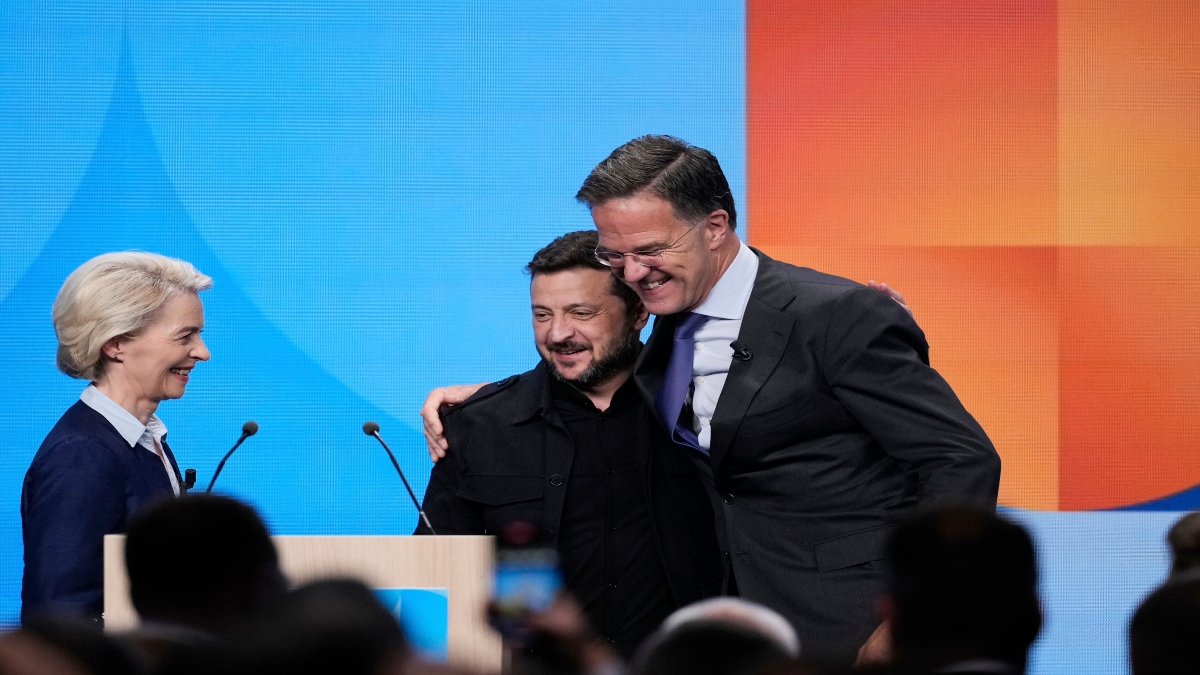European Commission President Ursula von der Leyen on Tuesday declared that “the Europe of defence has finally awakened,” as Nato allies prepare to set unprecedented spending targets in response to rising geopolitical threats, including Russia’s military buildup.
Speaking ahead of the Nato summit, von der Leyen hailed what she called a historic moment, with member states poised to commit to raising defence spending to five per cent of GDP — a dramatic shift in military posture not seen since the Cold War.
“The future of Europe is being written on the frontline in Ukraine — but also in your factories,” The Guardian quoted von der Leyen as saying to European defence manufacturers.
“In record time, you have opened new production lines, stepped up output, and adapted to the reality of full-scale war on European soil,” she added.
Von der Leyen warned that Europe must be prepared for Russia to challenge Nato’s mutual defence commitments by 2030.
“This is a once-in-a-generation tectonic shift,” she was quoted as saying.
“Europe must develop credible deterrence, and this will require a new mindset — ready to leave our comfort zones and embrace innovation across civil and military sectors,” she added.
Impact Shorts
More ShortsThe Commission president also emphasised the importance of streamlined defence procurement across EU states and candidate countries, while calling for deeper cooperation with key partners such as the UK.
NATO Secretary General Mark Rutte echoed the urgency, saying: “If you want peace, prepare for war. Nato’s military edge is being aggressively challenged by a rapidly rearming Russia, supported by Chinese tech and armed with Iranian and North Korean weapons.”
Rutte warned it is “unthinkable” that Russia — with an economy a fraction the size of Nato’s — should be able to outproduce the alliance militarily.
“We must spend more to prevent war. We must win this new war of production,” he said. “That’s what this summit is all about.”
Rutte said European allies should not worry about the United States’ commitment to Nato.
“There is total commitment by the US president and the US senior leadership to Nato,” Reuters quoted Rutte as telling a public forum before the formal opening of the summit.
He added, however, that such backing came with an expectation that European countries and Canada spend more on defence.
The two-day Nato summit is intended to signal to Russian President Vladimir Putin that Nato is united, despite US President Donald Trump’s previous criticism of the alliance, and determined to expand and upgrade its defences to deter any attack from Moscow.
With inputs from agencies
)